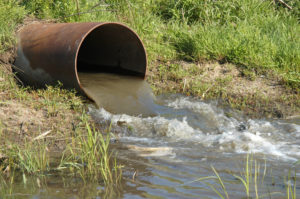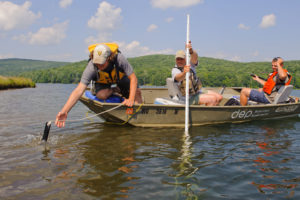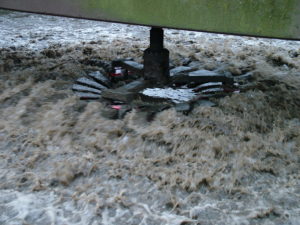A major revision of the seminal 1972 Clean Water Act became law on February 4, 1987, when Congress overwhelmingly overrode President Reagan’s veto of the bill. The revision added major new elements to water pollution control—and demonstrated the nation’s commitment to the environment.

The revision to the Clean Water Act was the first bill introduced into Congress in 1987—HR1—a major victory for conservation and the environment. The bill was identical to one passed nearly unanimously by Congress the preceding October, but which died when President Reagan failed to sign it within the required ten days. The so-called “pocket veto” worked because Congress had adjourned and could not schedule an override vote. Reagan vetoed the bill, then and in 1987, because he considered it a budget-busting extravagance. Controlling federal spending, he thought, was more important than controlling water pollution: the “issue facing me today does not concern the ensuring of clean water for future generations. The real issue is in the federal deficit….”

He judged wrongly. Ensuring clean water was more important. When Congress returned, they quickly passed the bill in both houses and sent it to the president. He vetoed the bill on January 30. The House overrode the veto on February 3, and the Senate on February 4.
The revisions to the Clean Water Act were significant:
- Authorized $18 billion for grants and loans to local municipalities to build improved water treatment plants. By doing so, the act overcame local funding issues that had impaired the clean-up of discharges from sewerage systems, especially in smaller communities.
- Created special programs to address pollution in major water bodies, including Chesapeake Bay, the Great Lakes and Boston Harbor.
- Established a National Estuarine Program to begin protection of the country’s brackish water systems.
- Furthered efforts to control non-point pollution, requiring states to develop their own management programs including “best management practices.

References:
Congressional Quarterly. 1988. Congress Overrides Clean-Water Bill Veto. CQ Almanac 1987, 43:291-296. Available at: https://library.cqpress.com/cqalmanac/document.php?id=cqal87-1144980. Accessed February 1, 2018.
Liebesman, Lawrence R. and Elliott P. Laws. 1987. The Water Quality Act of `1987: A Major Step in Assuring the Quality of the Nation’s Waters. Environmental Law Reporter 17:10311-10329. Available at: https://elr.info/sites/default/files/articles/17.10311.htm. Accessed February 1, 2018.
Weinraub, Bernard. 1987. Clean Water Bill Passed by House over Reagan Veto. The New York Times, February 4, 1987. Available at: http://www.nytimes.com/1987/02/04/us/clean-water-bill-passed-by-house-over-reagan-veto.html. Accessed February 1, 2018.
